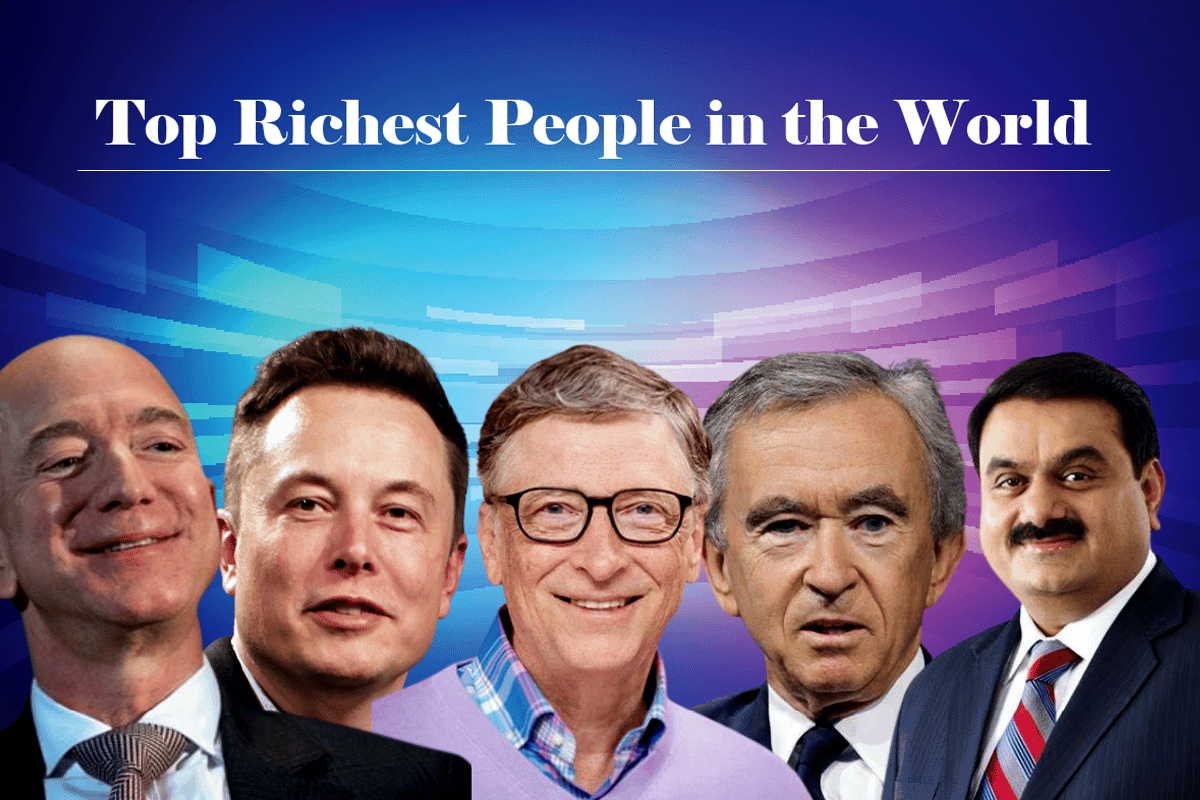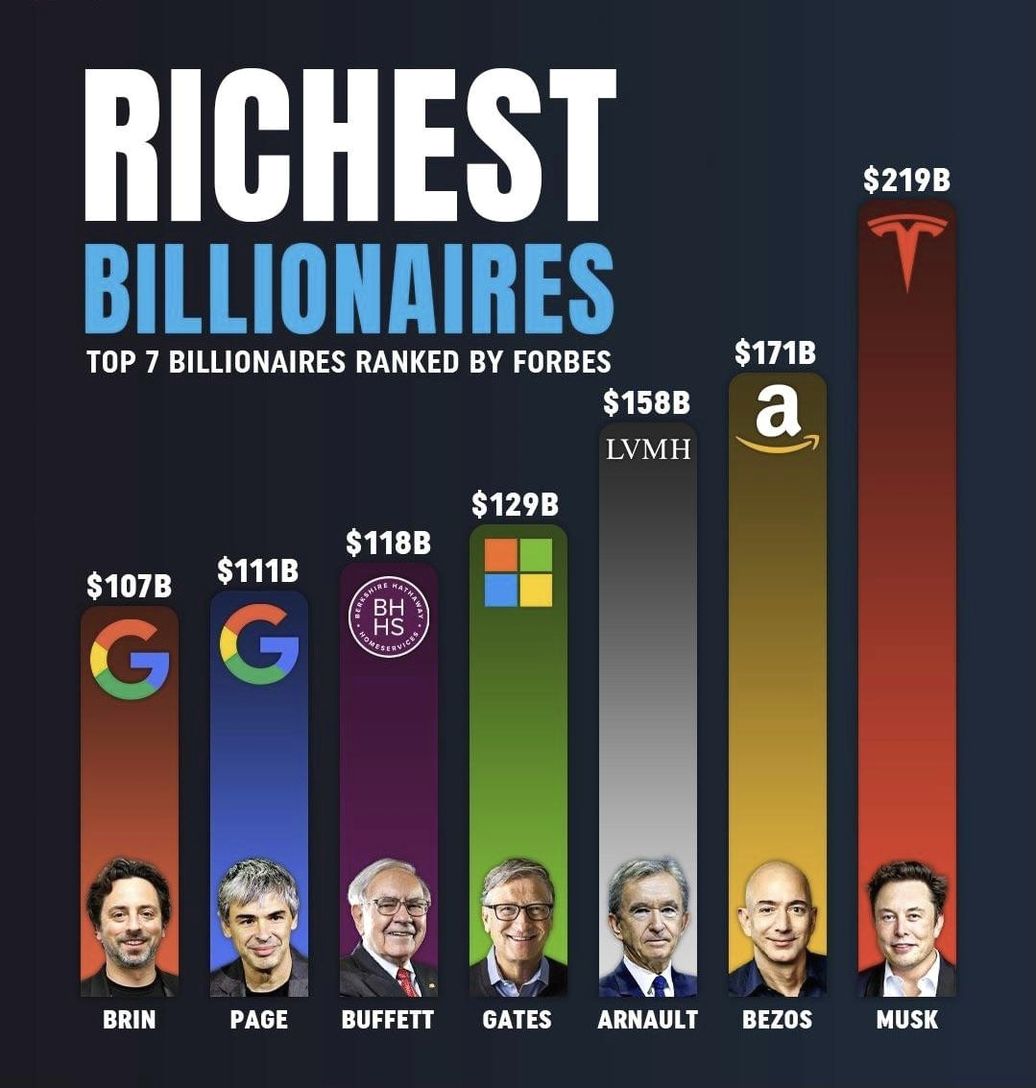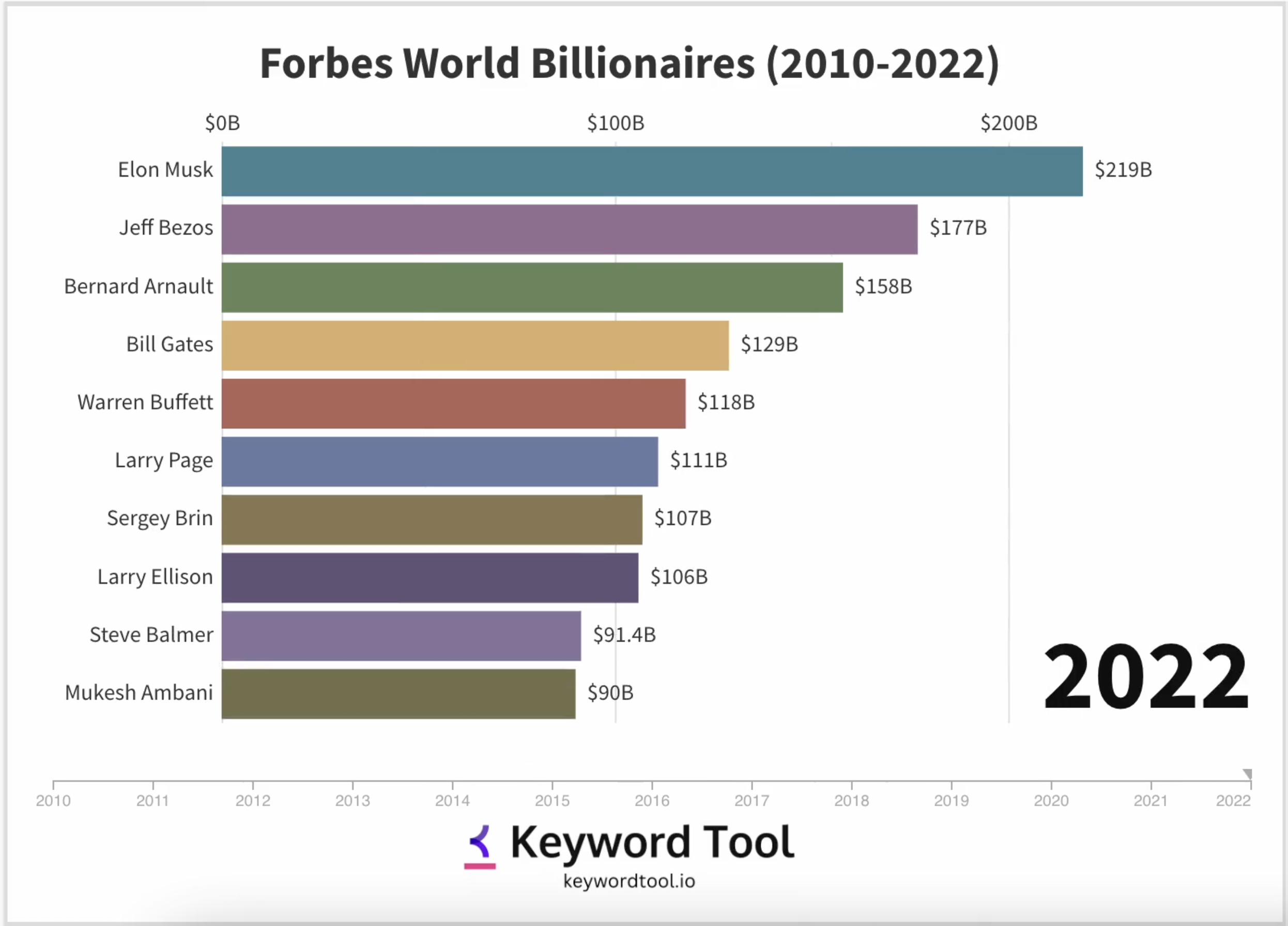It's almost natural to wonder about the wealth held by those who lead nations, isn't it? The question of who might be the richest president in the world often sparks quite a bit of curiosity, bringing to light the fascinating connection between political power and immense personal fortunes. For many, it seems, the very idea of a head of state possessing vast riches is a subject that holds a certain intrigue, prompting discussions about how such wealth is gathered and what it means for the countries they govern. This exploration of presidential fortunes is not just about numbers; it truly offers a glimpse into the varied paths leaders take to accumulate their wealth, from long-standing family assets to successful business ventures, or perhaps even control over national resources.
We often find ourselves pondering the sheer scale of wealth that can be amassed by individuals, especially when those individuals also hold the reins of national leadership. It is that, in a way, a subject that captures public imagination, with people keen to discover the specific figures, the sources of income, and the stories behind these impressive financial standings. Looking ahead to 2025, the picture of the wealthiest political leaders continues to be a dynamic one, showcasing a blend of experienced politicians and, perhaps, even some visionary entrepreneurs who have stepped into roles of state leadership.
This article aims to shed some light on this intriguing topic, drawing from various insights to reveal who stands among the wealthiest presidents on the planet. We will explore how these leaders have built their significant fortunes, looking at the different avenues through which wealth can grow, and how these personal riches can, in turn, affect governance, public perception, and even global relationships. You know, it's quite a complex interplay.
Table of Contents
- Who Is The Richest President in the World? Vladimir Putin
- Vladimir Putin: Personal Details and Estimated Wealth
- How Wealth Is Built: Diverse Paths for Leaders
- Wealth's Influence on Governance and Global Relations
- Emerging Trends in Power and Riches
- Beyond the Top Spot: Other Wealthy Leaders
- Understanding the Numbers: Forbes and Wealth Measurement
- Frequently Asked Questions About Presidential Wealth
Who Is The Richest President in the World? Vladimir Putin
When the discussion turns to the richest president in the world, one name frequently comes up, and that is Vladimir Putin. Based on various rankings and estimates, he is often cited as the wealthiest head of state. His estimated net worth, as reported by sources like Forbes, is quite staggering, reaching figures that place him at the very top of such lists. For instance, some reports indicate his fortune to be around $60 billion. This figure, very naturally, sparks a lot of conversation and, you know, even speculation, given the nature of political leadership and personal wealth.
It's interesting to consider that his position as one of the world's most powerful leaders is often mentioned right alongside his significant wealth. This combination of considerable influence and vast personal riches is, in a way, a defining characteristic of his public persona. The accumulation of such a fortune by a national leader is a subject that draws considerable global attention, prompting people to ponder the mechanisms and sources behind such immense financial holdings.
This kind of wealth, particularly when associated with a figure like Putin, really highlights how the world of politics can be deeply intertwined with personal finances. It’s not just about official salaries or allowances; it's about a much broader scope of assets and potential holdings that contribute to such a high estimated net worth. So, it's quite a complex picture, to be honest.
Vladimir Putin: Personal Details and Estimated Wealth
| Detail | Information |
|---|---|
| Name | Vladimir Vladimirovich Putin |
| Country | Russia |
| Role | President |
| Estimated Net Worth (as of 2024/2025) | $60 billion (according to Forbes ranking) |
| Primary Source of Wealth (reported) | Speculated to be linked to oil and gas reserves, investments, and projects. |
How Wealth Is Built: Diverse Paths for Leaders
The ways in which political leaders, including presidents and prime ministers, accumulate their fortunes are quite varied, really. It's not just a single, straightforward path. Some, for instance, might have inherited considerable family wealth, with roots in historical landholdings or established businesses. Others, and this is quite common, have built their wealth through direct involvement in industries like oil and gas, leveraging control over natural resources that belong to their nations. This can involve, you know, stakes in major energy companies or the benefits derived from resource-rich economies.
Then there are those who come from backgrounds as successful entrepreneurs or business tycoons before entering public service. These individuals bring with them fortunes accumulated through ventures in real estate, various investments, or large-scale projects. Their wealth, in such cases, is typically a result of their past commercial successes and strategic financial decisions made outside the political arena. It's like, they had a strong financial base before they even stepped into the political scene, you know?
Furthermore, some leaders' wealth might be tied to their long careers in public service, where salaries, allowances, and perks, though seemingly modest on their own, can add up over decades. Beyond official compensation, there are also investments made during their time in office or through family members. The complexity of these financial arrangements means that tracing the exact origins of every dollar can be quite a challenge, especially when state assets and personal holdings might, perhaps, seem to blur a little. So, it's a very intricate picture.
Wealth's Influence on Governance and Global Relations
The presence of significant personal wealth among top political leaders can, quite frankly, have a profound impact on how governance unfolds and how a nation interacts with the rest of the world. When a president holds a vast fortune, it can, in a way, shape public perception. People might wonder about conflicts of interest, or if decisions are being made for the good of the country or for personal financial gain. This perception, you know, can really influence how much trust citizens place in their government and its leaders.
In terms of governance, a leader's wealth might, arguably, give them a certain degree of independence from traditional financial pressures, or it could, on the other hand, create new avenues for influence. For instance, if a leader's fortune is deeply intertwined with specific industries or companies, policies related to those sectors might be viewed through a different lens. This kind of financial entanglement can, basically, raise questions about fairness and equal opportunity within the economy of the country.
On the global stage, the wealth of a president can also play a role in international relations. A leader with immense personal resources might be seen as having greater leverage or, perhaps, even less susceptibility to certain forms of external pressure. This can influence diplomatic negotiations, trade agreements, and even alliances. The top 10 richest presidents in the world, in 2024, really do exemplify how personal wealth can contribute to shaping public perception and global relations, making it a topic of enduring interest. It’s a very interesting dynamic, to be honest.
Emerging Trends in Power and Riches
Looking at the landscape of global leadership, particularly in 2025, we can observe some interesting emerging trends concerning wealth and power. There's a noticeable mix appearing on the lists of the wealthiest presidents. We see, for example, seasoned politicians who have spent decades in public life, slowly accumulating assets over their careers. But then, too, there's also a rising presence of visionary entrepreneurs who have successfully transitioned from the business world into roles as heads of state. This, you know, is quite a shift in some respects.
This trend suggests that the path to political power, and with it, potentially, significant wealth, is becoming more diverse. It’s not just about climbing the traditional political ladder anymore; it’s also about leveraging success from other sectors. These entrepreneurs, often with backgrounds in real estate or other large-scale business ventures, bring their accumulated fortunes and business acumen directly into government. This, arguably, reshapes the traditional image of a political leader.
Moreover, the way wealth is accumulated seems to be evolving. While traditional sources like control over natural resources (think oil and gas reserves) remain significant, there's a growing emphasis on investments and various projects. This indicates a move towards more diversified portfolios for leaders, or perhaps, a greater focus on leveraging economic opportunities within their nations. The overall picture, as we explore the top 20 richest presidents in the world in 2024, reveals that wealth for leaders is a multifaceted subject, encompassing various elements that go well beyond just a government salary. It’s pretty complex, actually.
Beyond the Top Spot: Other Wealthy Leaders
While Vladimir Putin often captures the spotlight as the richest president, it's important to remember that he is certainly not the only political leader with a vast fortune. The "My text" indicates that other notable figures also feature prominently on lists of the world's wealthiest heads of state. For instance, Hassanal Bolkiah, the Sultan of Brunei, is consistently mentioned among the planet's richest leaders. His wealth, you know, is largely derived from Brunei's extensive oil and gas reserves, which have been a source of immense national and royal fortune for generations. It's a truly incredible amount of money.
Another prominent figure is Maha Vajiralongkorn, the King of Thailand. His wealth is, quite literally, tied to the Crown Property Bureau, which manages vast royal assets, including extensive landholdings, investments in various companies, and other significant financial instruments. This kind of wealth is, in a way, different from that accumulated by a president, as it often has historical roots and is managed through a unique institutional structure. It’s like, a very old kind of wealth, perhaps.
The lists of wealthy leaders, which sometimes extend to the top 10 or even the top 20, also include individuals from various other countries. We see, for example, leaders from Saudi Arabia and other nations where natural resources, particularly oil, play a huge role in the national economy and, by extension, can contribute to the wealth of their ruling families or heads of state. These leaders often accumulate their wealth through a mix of inherited assets, control over state-owned enterprises, and strategic investments. So, it's quite a diverse group, really.
Understanding the Numbers: Forbes and Wealth Measurement
When we talk about the net worth of the richest president in the world or any wealthy individual, it's really important to understand how these figures are arrived at. Publications like Forbes are well-known for their annual rankings of the wealthiest people and families globally. They undertake extensive research to estimate net worths, considering a wide array of assets. This includes, for instance, public and private company holdings, real estate, art collections, cash, and even, you know, other valuable possessions. They also factor in debt to arrive at a net figure.
The process of estimating the wealth of political leaders can be particularly complex. Unlike private citizens whose financial dealings might be more transparent, the assets of heads of state can sometimes be intertwined with national resources or held in ways that are not publicly disclosed. This means that figures, like the $60 billion attributed to Vladimir Putin, are often estimates based on available information, intelligence reports, and, perhaps, even careful analysis of economic indicators. It's not always a straightforward calculation, as a matter of fact.
Forbes, for example, presents its world's billionaires list annually, with information often updated to a specific date, like March 7, 2025, or March 8, 2024, for different lists. These dates are crucial because fortunes can fluctuate significantly due to market changes, investments, or other financial movements. So, the numbers are, essentially, a snapshot in time. They also use detailed methodologies to ensure their estimates are as accurate as possible, considering factors like country of residence and source of wealth. This helps to provide a clearer picture, even if it's not always a perfectly precise one. You can learn more about wealth and power on our site, and link to this page for more insights into global financial trends. It’s pretty fascinating, honestly.
Frequently Asked Questions About Presidential Wealth
Here are some common questions people often ask about the wealth of political leaders:
Who is the richest president in the world in 2025?
Based on available information and rankings, Vladimir Putin is widely cited as the richest president in the world, with an estimated net worth of around $60 billion as of 2025, according to sources like Forbes. This figure is, you know, quite a significant sum.
How do presidents accumulate their wealth?
Presidents accumulate wealth through various means. This can include inherited family fortunes, control or influence over national resources like oil and gas reserves, strategic investments, successful business ventures before entering politics (for those who were entrepreneurs), and, of course, their official salaries, allowances, and perks over long careers in public service. It’s often a very complex mix of sources.
Does a president's wealth influence their country's governance?
Yes, a president's personal wealth can, arguably, influence governance and public perception. It can raise questions about conflicts of interest, shape the public's trust in their leadership, and potentially affect policy decisions, especially if their wealth is tied to specific industries. On the global stage, it might also influence diplomatic relations and negotiations. It's a pretty big deal, really.



Detail Author:
- Name : Adele Batz
- Username : tremblay.isabel
- Email : jaunita.hagenes@yahoo.com
- Birthdate : 1995-07-21
- Address : 364 Roberts Way Apt. 511 Montyland, OH 22126-7327
- Phone : 774-210-2363
- Company : Raynor-Dickinson
- Job : Food Servers
- Bio : Sed molestiae alias veritatis ipsa sed esse aut. Dolorem incidunt vel hic repellendus hic accusamus. Sint necessitatibus ut aut non. Ut quae est quis consequatur.
Socials
facebook:
- url : https://facebook.com/maeve_mueller
- username : maeve_mueller
- bio : Consequatur accusamus ut assumenda quia temporibus cum praesentium ipsa.
- followers : 2926
- following : 1049
twitter:
- url : https://twitter.com/mueller1978
- username : mueller1978
- bio : Natus tempora sunt ut ut. Veniam sunt placeat delectus inventore qui reiciendis nobis. Voluptatum officiis totam ut in eveniet modi.
- followers : 4770
- following : 1678